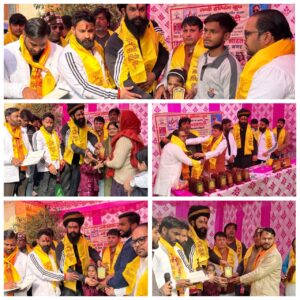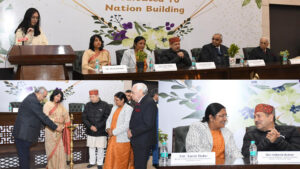
BCR NEWS (Ajay Shastri/New Delhi): Praja Foundation on 8th September launched its Delhi database on their website. The website earlier only had information related to civic issues to citizens, media, government administration in Mumbai, will now have the information at disposal for Delhi as well.
The website will consist of data sets related to state of civic, health, education and crime in Delhi. The organisation also works with elected representatives (MLAs and Municipal Councillors) tracking their performances through a ranking matrix for both Mumbai and Delhi. The information of the elected representatives in Delhi will be also be available on the Praja website through ER cards which will have information of the ERs in a collated format including their wards, constituency, ranking, performance and contact details as provided by them in the affidavit.
Nitai Mehta, Founder and Managing Trustee of Praja Foundation regarding the launch of the Delhi website phase said, “The idea behind this is event is to build the gap between citizens and governance. Through this the new phase of the Praja website, we aim to identify and address lacunas in work processes of governance, bridge the information gaps and aid them in taking corrective measures in Delhi and Mumbai”.
The website already has 2.5 crore data points for Mumbai through data collection using the Right to Information (RTI) on the state of civic amenities in Mumbai as well as the state of health, education, housing & transport and crime in Mumbai. The new phase of the website, which will now include the Delhi chapter has 2 crore data points on the issues of civic issues in Delhi and the issues of education, crime and health. The data for both cities, Mumbai and Delhi will keep increasing granularly with more data sets being added each year using the Right to Information. These data sets can be easily accessed by citizens, elected representatives and media personnel.
On the same day, Praja Foundation also organised an Open Government Data symposium. Open Government Data (OGD) is widely seen to be a key hallmark of contemporary democratic practice and is often linked to the passing of freedom of information legislation. OGD is a philosophy—and increasingly a set of policies—that promotes transparency, accountability and value creation by making government data available to all.
Sharing his insight on the issue pertaining to making information accessible to citizens and the role technology plays in better governance, Milind Mhaske, Project Director of Praja Foundation, said “Public bodies produce and commission huge quantities of data and information. By making their datasets available, public institutions become more transparent and accountable to citizens. By encouraging the use, reuse and free distribution of datasets, governments promote business creation and innovative, citizen-centric services.”
Through the website launch and the event, the organisation looks forward to capitalise Internet and technology as tools for better governance to improve the quality of life for all.
About PRAJA Foundation:
PRAJA was founded in 1997 with a vision to re-establish accountability and transparency in governance. Fuelled by a concern about a general lack of interest among the Citizens’ in the local Government; Praja aims to create awareness among the citizens, and therefore empower them though the knowledge.
PRAJA believes that the availability of information can go a long way towards simplifying people’s lives and evoking participation. This aims to ensure aholistic approach for ushering good governance must have buy in of our ideas from the elected representatives. At the same time, there should be tools and mechanisms which enable citizens to keep a close watch on the work done by their elected representatives. PRAJA’s goals are simplifying people’s lives, empowering the citizens and Government with facts and creating instruments of change to improve the quality of life of citizens in India. PRAJA is committed to creating an accountable and efficient society through people’s participation.







